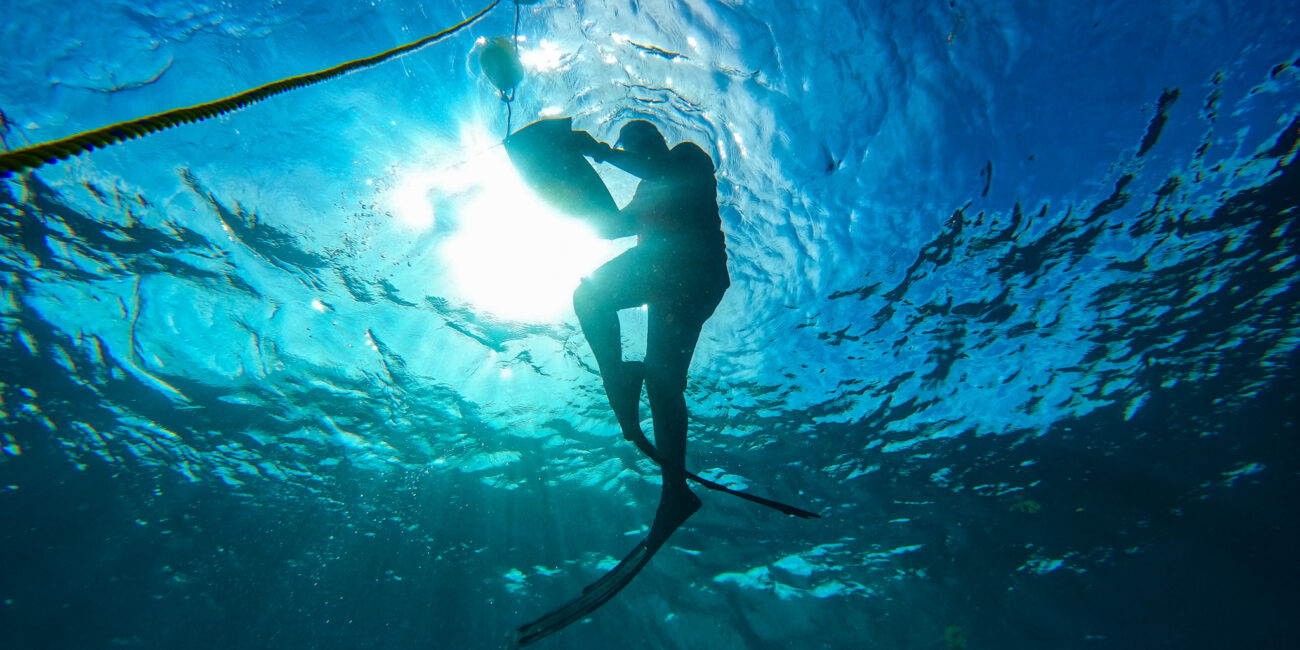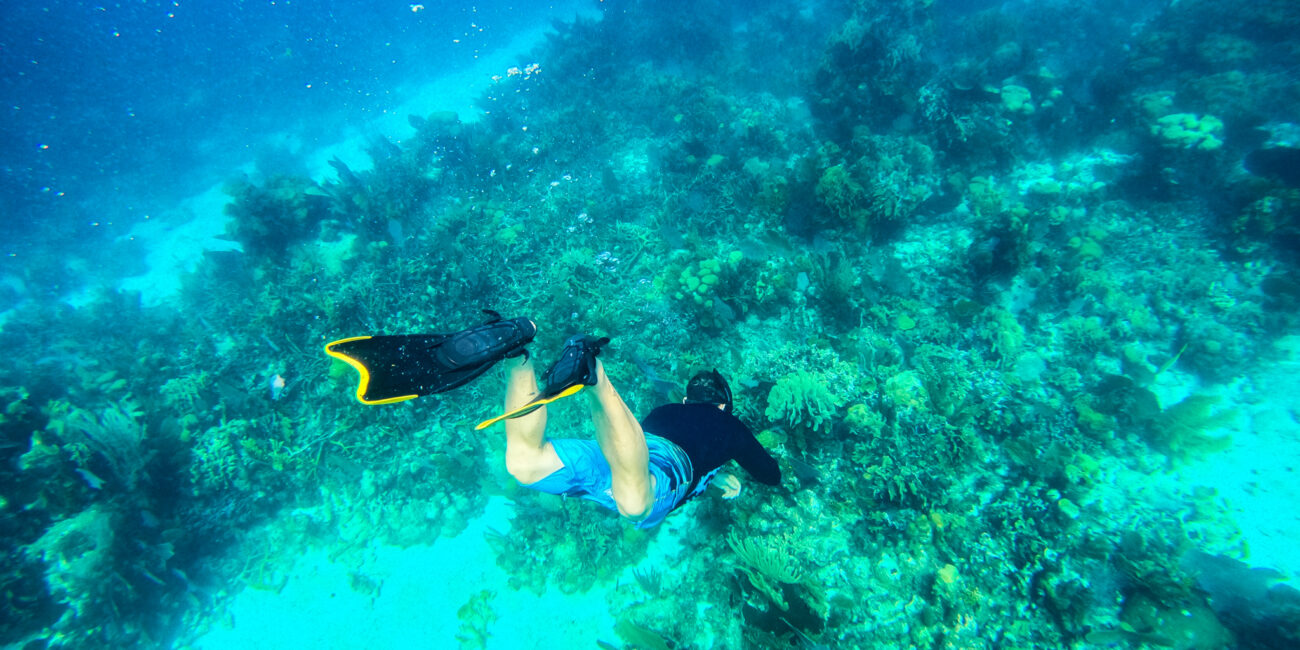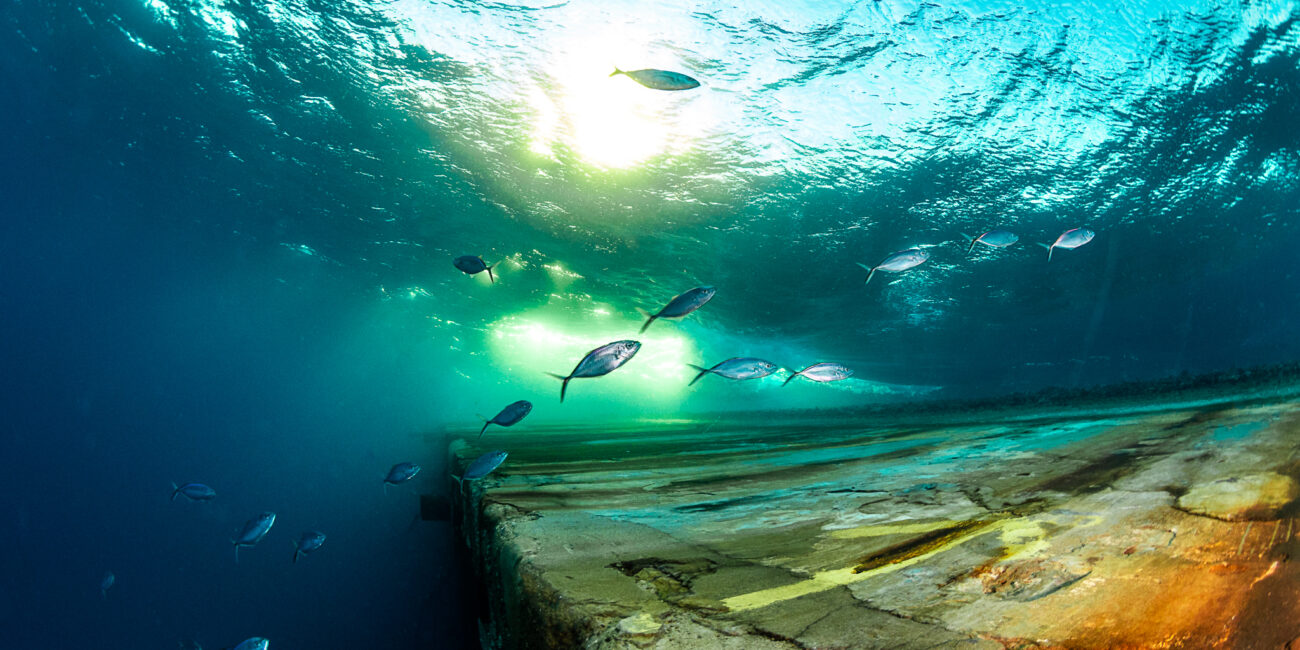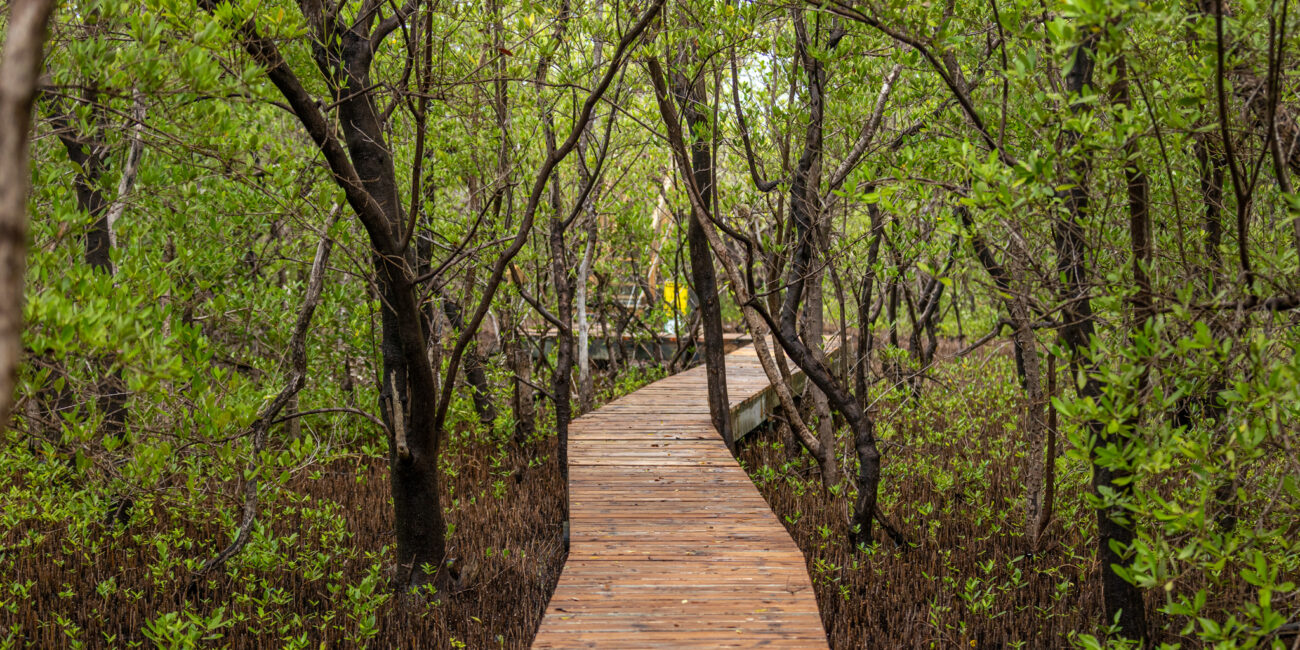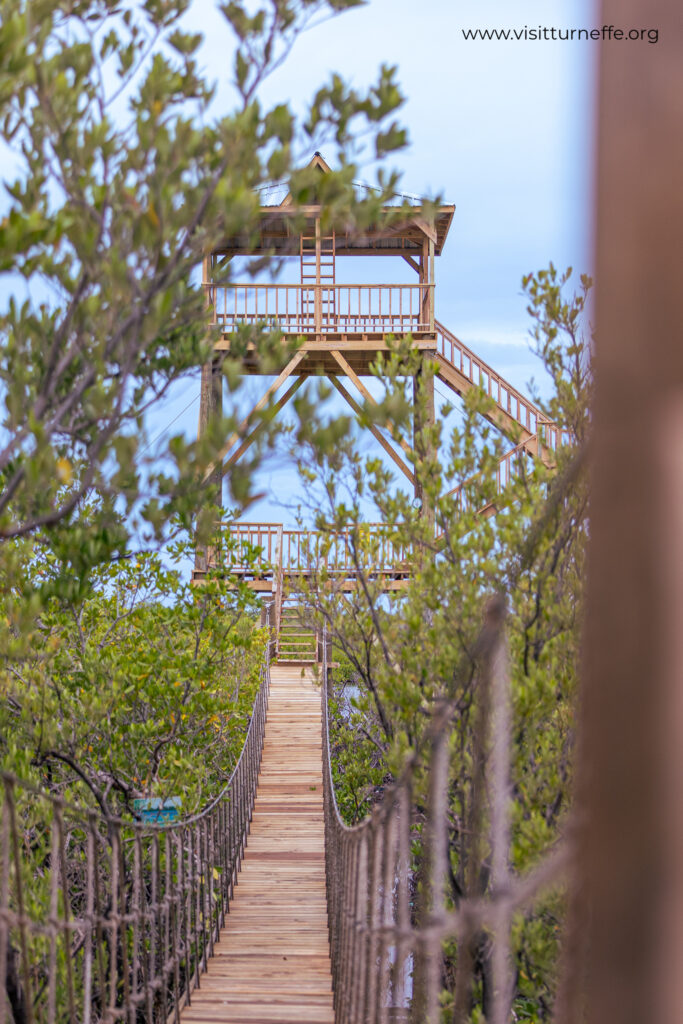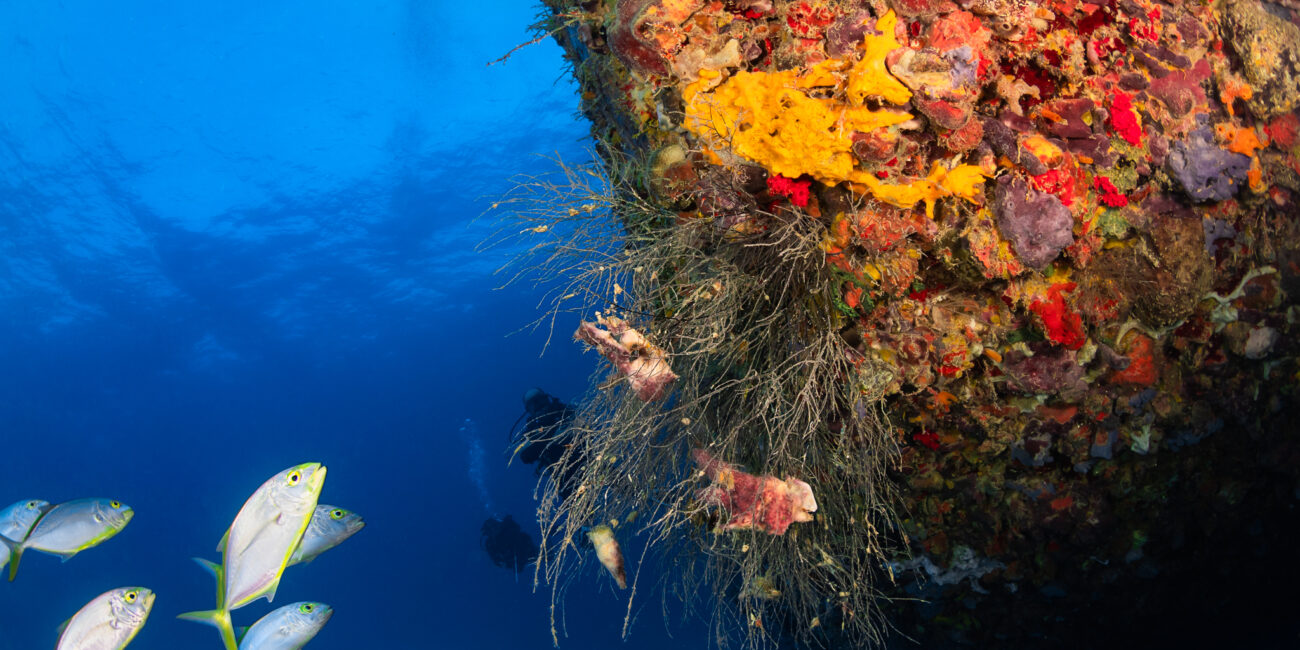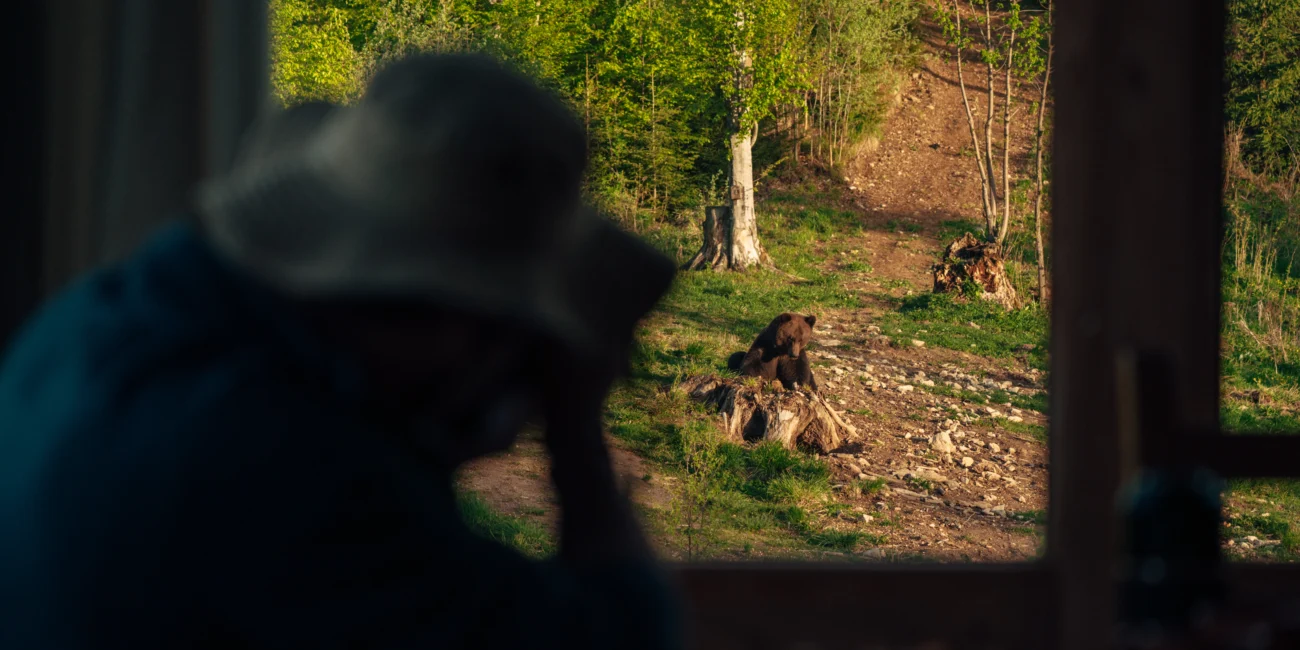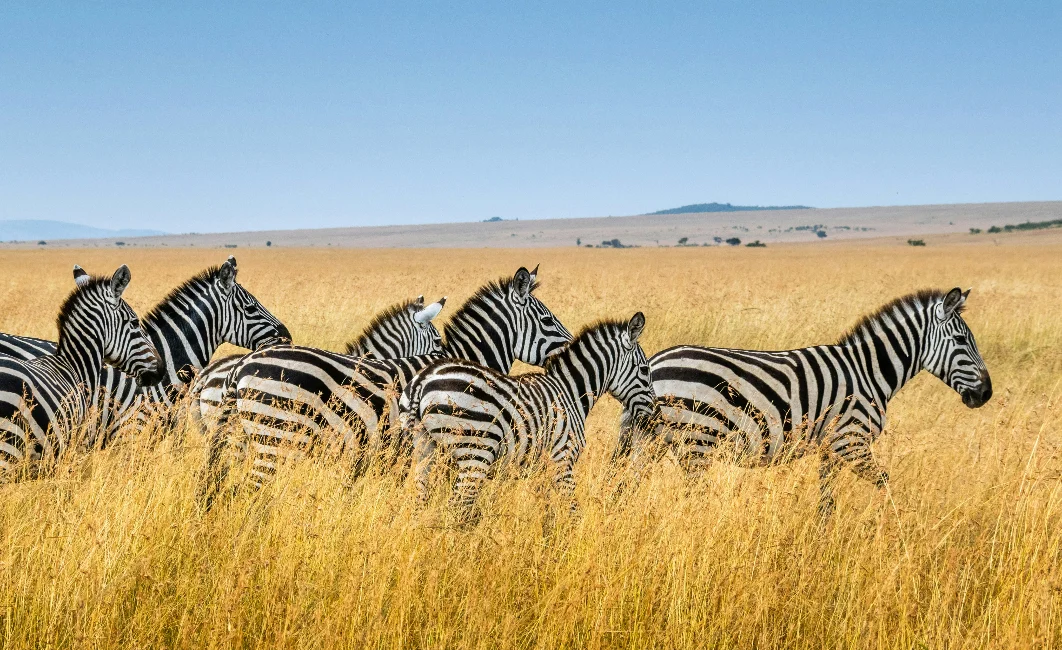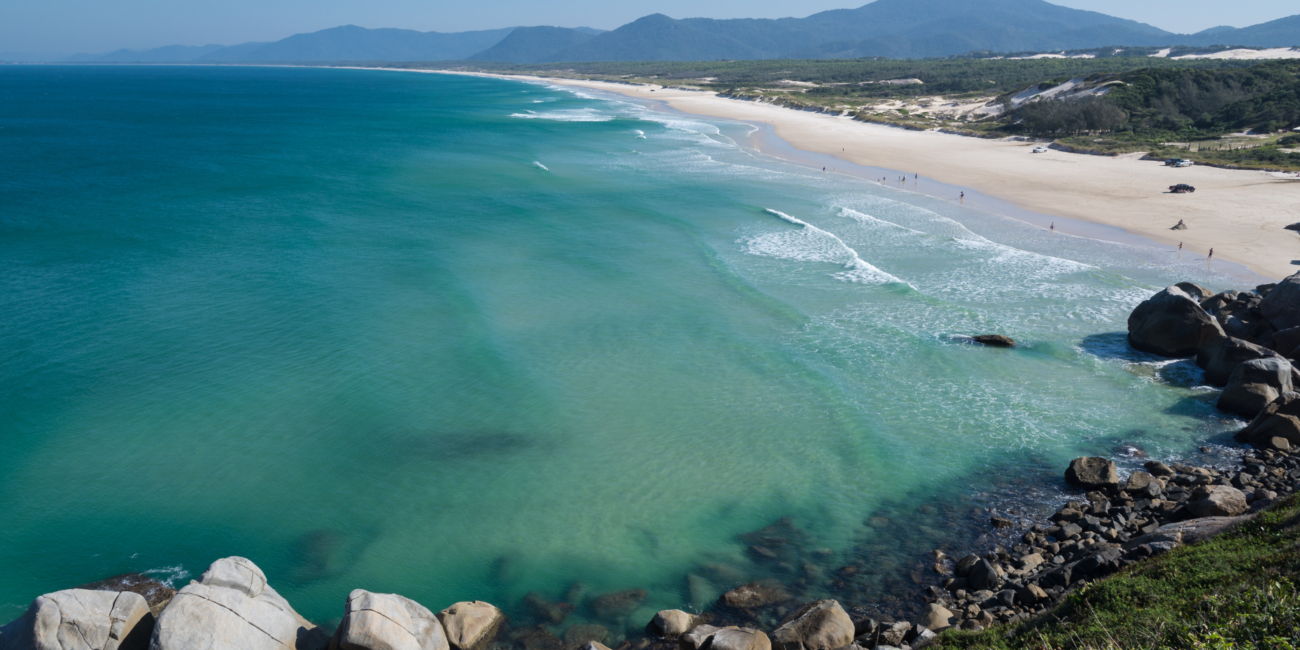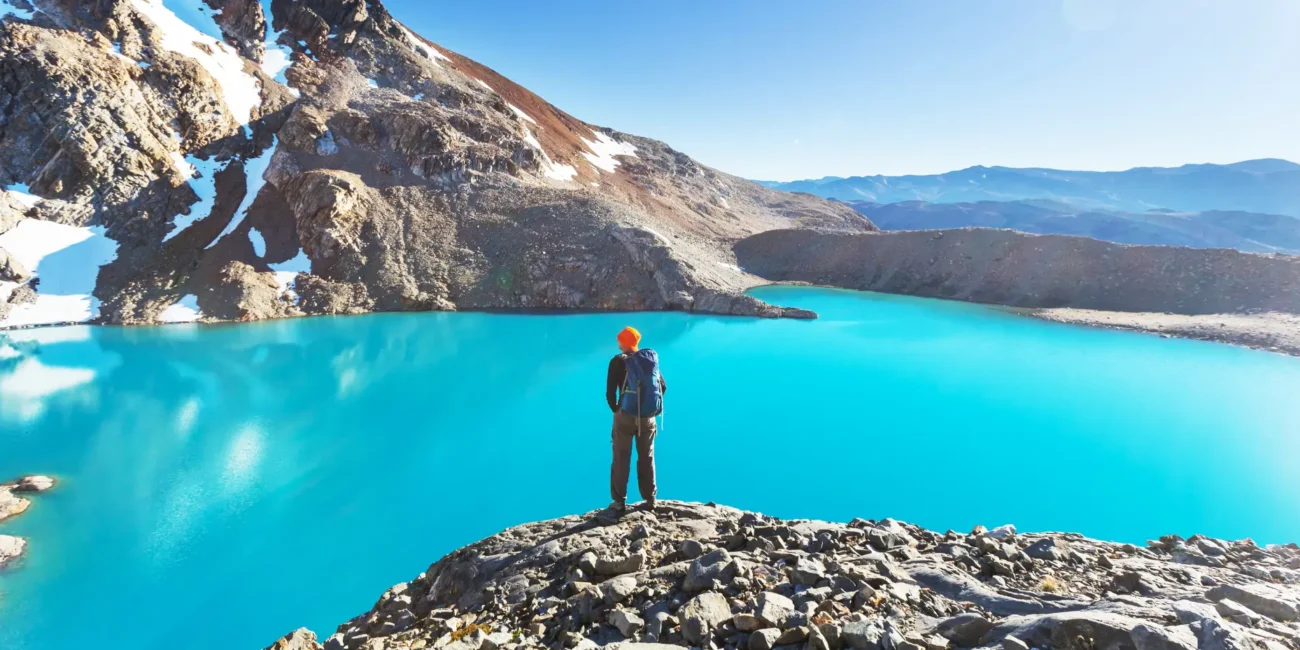As a small nation committed to biodiversity protection, Belize has already fulfilled its land-based commitments to the United Nations post-2020 biodiversity framework, in which 30% of the land and sea must be protected by 2030. With 28% of its water also protected, Turneffe Atoll Sustainability Association (TASA) is one Belizean organisation working to ensure its marine ecosystems’s protected areas remain properly protected for generations to come.
Between 23rd February – 2nd March 2024, we will host a small group to explore Belize’s rich biomes. Beginning in the dense tropical jungle of Maya Forest and Mountain Pine Forest Reserve, we will journey on to the vast coral reefs that line Belize’s shores, joining TASA to experience firsthand the important impact of their work. You can find out more about the journey here and view the full itinerary below.
Ahead of our journey, with caught up with Valdemar Andrade, Executive Director of TASA, to learn more about the NGO’s mission and impact on the ground…
What does TASA’s conservation work entail?
Turneffe Atoll Sustainability Association (TASA) is a non-profit organisation in Belize that has been committed to protecting and sustainably managing the Turneffe Atoll Marine Reserve since 2013. TASA serves as the official co-manager of the reserve, with a conservation mandate that includes enforcement, adaptive management (practical science for management), eco-tourism management, and education and outreach. Alongside these initiatives, TASA collaborates with local stakeholder communities to promote responsible fishing practices and sustainable complementary livelihoods, with the goal of raising awareness about marine conservation and ensuring long-term protection of the marine reserve.
Have you noticed a growing engagement with your work from local Belizeans?
Yes, and especially from our fishers and the tourism stakeholders that operate within Turneffe. However, while this growth is consistent it is slow. Through our different programmatic areas, we have been able to engage, educate and inform the local stakeholders about the significance of sustainably utilising the marine reserve. However, there is room for more effective engagement but the lack of consistent funding has made it difficult for us to reach our full outreach and community engagement potential.
What is the general attitude towards TASA’s work?
Positive – we are highly regarded as a model marine protected area in Belize! Our innovative approaches, one of which includes the use of cutting-edge technology across our program areas, has been instrumental in enabling us to take a more adaptive approach to managing the reserve and ensuring its long-term sustainability. For example, the use of hydrophones for Spawning Aggregation Monitoring, electronic ticketing for park fee bookings, and a first-of-its-kind (in Belize) Marine Monitoring Radar for enforcement purposes, which is a first as well for Belize.
Consequently, TASA has earned respect and recognition both locally and internationally, for our efforts towards marine conservation and sustainable management of the Turneffe Atoll Marine Reserve with 100% Belizean staff. Again, the deciding factor in further enhancing our innovation and approach consistency is the lack of consistent financing approaches and opportunities.
What have been some of TASA’s biggest challenges?
The lack of predictable income is a significant challenge that impacts the long-term sustainability of our conservation efforts. Grants are often too restricted, unpredictable and not sustainable, which has limited our flexibility in implementing long-term projects. The grant funds have a start and an end date and often do not cover a large portion of core cost while our work is programmatic and requires consistent staffing and resources to shoe impact.
Additionally, illegal fishing practices and pressures from development in the marine space continue to pose a significant threat to the Turneffe’s sustainability. We have implemented measures to combat these issues, but more support is needed to tackle this effectively to ensure that we have the relevant capacities and systems in place.
What have been some of TASA’s biggest successes?
TASA made history in Belize as the first and only MPA to implement a Blended Finance Facility for conservation financing.
TASA launched an innovative Financial Sustainability Program through Eco-Tourism in 2022, diversifying our revenue streams while promoting sustainable tourism practices.
For the first time in 10 years, TASA is leading the science and research in Turnefffe Atoll through our Adapative Management Program.
We have integrated sustainable mariculture and community development projects into our outreach program, promoting economic opportunities while preserving natural resources. The use of SMART and a Marine Monitoring Radar has allowed our Enforcement Team to incorporate advanced technology into our operations.
TASA has grown to nearly 30 full-time Belizean staff, creating local employment opportunities and promoting community engagement. All these approaches have been carefully designed to be able to be scaled across the Marine Protected Areas System.
What do you hope those visiting Belize learn from the experience?
We hope that they learn what Belizeans are helping to achieve for visitors such as themselves – we are helping to maintain a special place for them to come to relax, and spotlighting how they can play their part while doing this by helping to save some of the world’s greatest conservation areas so that we can have their families and friends visit and see and enjoy the improvements over time with them too.
We hope that they can see and partake in conservation and they will experience and be inspired by the links between people and the environment that sustains them.
What can our guests hope to learn from TASA on their journey to Belize?
We believe that any visitor who engages with us can understand and experience firsthand how one small group of young, passionate Belizeans is transforming marine conservation in Belize.
We hope that your guests are able to learn about our culture, the importance of marine conservation and the large impact that small initiatives can have on preserving biodiversity and sustaining ecosystem services that support local communities. We hope that your guests can also understand the challenges we face and appreciate the dedication and hard work involved in protecting marine reserves.
Finally, we hope that guests will learn about sustainable tourism practices and how they can contribute to TASA’s conservation efforts, not only for that moment, but how they can actually become stewards and check in regularly on what they become invested in during the journey.
How can others support or engage with TASA’s work?
* Donating funds: Financial support is crucial for TASA’s sustainability and growth. Individuals and organisations can donate funds to TASA through our website or launch their own fundraising campaigns through the visitturneffe.org website.
* Donating Equipment: Support with particular equipment is crucial for TASA’s sustainability and growth at the program levels. We are always in need of computers, go-pros, GPSs, boats, engines, etc. Individuals and organisations can donate funds to TASA through our website or launch their own fundraising campaigns through the visitturneffe.org website.
* Spreading the word: By sharing information about TASA’s mission and conservation efforts with others, individuals and organizations can help raise awareness and promote sustainable practices that support TASA’s work. The work of mouth marketing is the best marketing we can all achieve.
* Supporting eco-friendly tourism: Visitors can support TASA’s work by participating in Turneffe’s signature experiences while in the Atoll and by supporting TASA’s tourism partners who are helping us to promote responsible travel practices and the sustainable management of the Turneffe Atoll Marine Reserve.
Applications for our Journey to this extraordinary nation are now open and further details can be found here.
The journey incorporates a 20% donation to the hosting NGOs involved. If you would like to learn more about TASA’s work and how this journey will support them, please get in touch at connect@stg-journeyswithpurposeorg-staging.kinsta.cloud or via this link.
